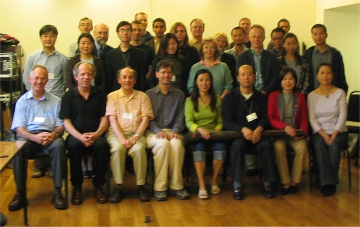 Programme
Programme Programme
Programme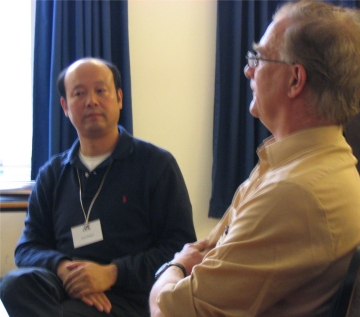 There are a number
of different schools of qin music,
generally separated by
region. That of Sichuan is one of the most important. The old name for
the northern part of the province was Ba; the western part (in which
Chengdu is located) was called Shu. During the Three Kingdoms period,
Liu Bei established the kingdom of Shu. The name Sichuan came into use
about 1000 years ago during the Song Dynasty. The Sichuan school of qin playing is usually referred to
as Shupai, but can also be called Chuanpai, preference being given to
the older name. It is closely associated with the culture of the
region. many famous literary figures, such as Sima Xiangru and the Tang
poet Li Bai. The qin has a
history of at least 2000 years in Sichuan.
There are a number
of different schools of qin music,
generally separated by
region. That of Sichuan is one of the most important. The old name for
the northern part of the province was Ba; the western part (in which
Chengdu is located) was called Shu. During the Three Kingdoms period,
Liu Bei established the kingdom of Shu. The name Sichuan came into use
about 1000 years ago during the Song Dynasty. The Sichuan school of qin playing is usually referred to
as Shupai, but can also be called Chuanpai, preference being given to
the older name. It is closely associated with the culture of the
region. many famous literary figures, such as Sima Xiangru and the Tang
poet Li Bai. The qin has a
history of at least 2000 years in Sichuan. 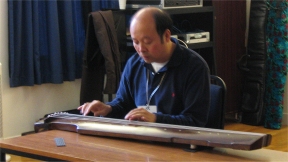 Da dayuan ("large striking circle") - differs
from a normal dayuan in that
the tiao are played across
3 strings, not just a single one. This is
much more expressive of flowing water. Other schools use a normal dayuan in Liu Shui.
Da dayuan ("large striking circle") - differs
from a normal dayuan in that
the tiao are played across
3 strings, not just a single one. This is
much more expressive of flowing water. Other schools use a normal dayuan in Liu Shui. 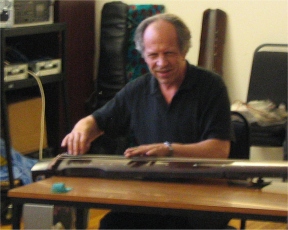 |
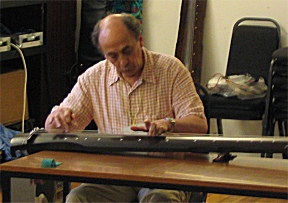 |
|
| Stephen
Dydo playing Pu'an Zhou |
Christopher
Evans playing Jiu Kuang |
Copyright the London Youlan Qin Society,
2005. All
rights reserved.